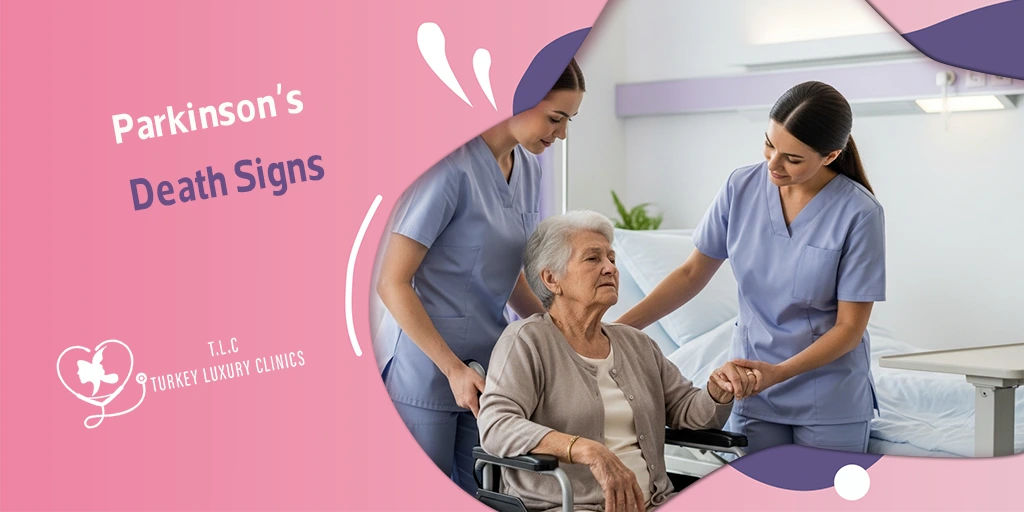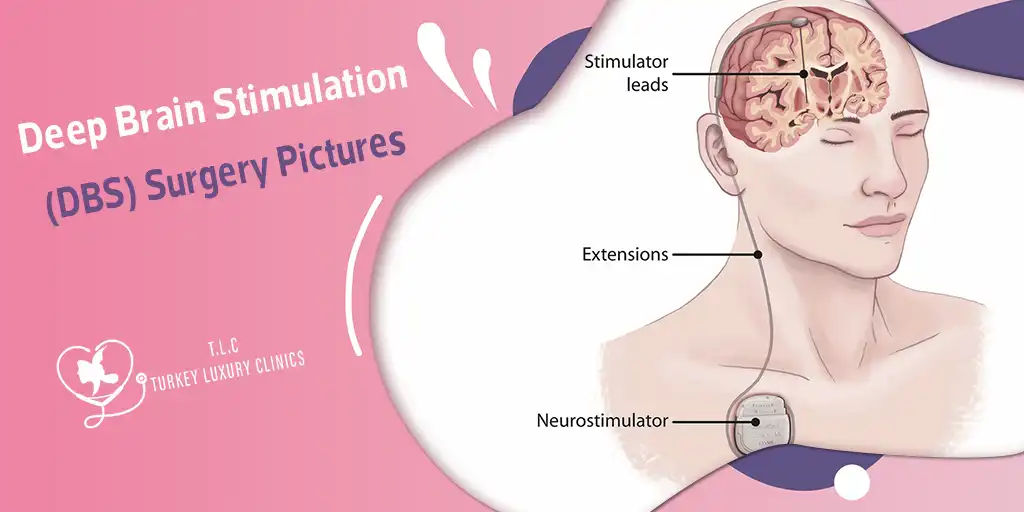- - What is Cancer Screening for Women?
- - Screening for Breast Cancer
- - Screening for Cervical Cancer
- - Screening for Colon Cancer
- - Other Cancer Screening Tests for Women
- - General Cancer Screening for Women
- - Cancer Screening Package for Women at Turkey Luxury Clinics
- - FAQs About Cancer Screening for Women
Early detection of cancer significantly increases the chances of successful treatment and survival, as tumors can be identified and managed before they spread. This is why cancer screening programs are essential—they focus on detecting cancers that are both common and highly treatable when discovered early.
Women face unique risks and types of cancer, with breast cancer affecting thousands of women every year. However, increased awareness and regular screening have greatly improved early detection and treatment success rates.
Don’t hesitate to take charge of your health. Turkey Luxury Clinics offers cost-effective comprehensive health checkup packages and more specifically cancer screening packages for women, making it easier than ever to monitor your health and catch potential issues early.
What is Cancer Screening for Women?
Cancer screening for women is a regular medical checkup to detect early signs of cancer before symptoms appear. Early detection significantly increases the chances of successful treatment.
Cancer screening tests for women involves regular tests for certain types of cancer, includes mammograms for breast cancer (starting around age 40), Pap and HPV tests for cervical cancer (starting at age 21), colonoscopies or stool tests for colorectal cancer (starting around age 45), and potential lung cancer screening for high-risk smokers.
Cancer screening is recommended for women at higher risk; however, all women should prioritize their health and undergo a more comprehensive women checkup
Screening for Breast Cancer
Breast cancer screening involves checking a woman’s breasts for cancer before any signs or symptoms appear. Early detection of breast cancer through screening significantly increases the chances of successful treatment.
Screening is performed using several methods, including mammograms, clinical breast exams (CBE), and breast MRI (magnetic resonance imaging) for those at higher risk.
For women at average risk, the American Cancer Society and other expert groups recommend beginning breast cancer screening around age 40 and continuing at least every two years.
Young women with a family history of breast cancer or those with genetic evidence of increased risk may need to start screening at a younger age and may be offered additional imaging, such as breast MRI.
Regular breast cancer screening, especially for women aged 60 to 69, has been shown to significantly reduce breast cancer mortality, highlighting the importance of adhering to recommended screening schedules for both average-risk and high-risk women.
Mammograms
Mammograms are low-dose X-rays of the breast that can detect small tumors at an early stage, often before lumps or other changes can be felt. Mammograms are the cornerstone for screening and diagnosis of breast cancer and are the most effective method for early detection of breast cancer before signs and symptoms which allow for early treatment and increase chance for recovery.
It is recommended for most women starting around age 40. Even women having breast implants, can have mammograms, though you may need additional images
Mammogram image for breasts is performed by placing the breast between two plates and using X-rays to capture images; these exams are vital for early detection, which can lead to more effective and less invasive treatment.
Breast MRI
A breast MRI is used for cancer screening in women at high risk for breast cancer, recommended in addition to a mammogram, not as a standalone test.
It can detect cancers missed by mammography, especially in women with dense breasts or breast implants, and helps assess the extent of a diagnosed cancer.
MRI uses powerful magnets and radio waves to create detailed images and may involve a contrast dye to highlight abnormal tissue.
For high-risk individuals, the American Cancer Society recommends starting annual screening with both a breast MRI and a mammogram, typically at age 30
Who is Recommended to Get Breast Cancer Screening?
1. Breast Cancer Screening for Women at Average Risk
The US Preventive Services Task Force (USPSTF) recommends that women at average risk for breast cancer begin screening between ages 40 and 74 with a mammogram every 1 to 2 years. Screening at a younger age is generally not needed unless there are high-risk factors.
2. Breast Cancer Screening for High-Risk Women
Women at higher risk, such as those with a strong family history of breast cancer or known genetic mutations, should start breast cancer screening earlier than age 40. Screening for breast cancer at a younger age is recommended yearly for women with genetic evidence of increased risk, often starting in their 30s.
For some high-risk women, it is advised to undergo both a mammogram and a breast MRI annually to ensure early detection.
What to Expect After Breast Screening?
You can immediately resume your normal activities but may experience mild discomfort, which usually subsides within 24 hours
You will receive your results within 2 to 4 weeks. Most results are normal. If further tests are needed, it does not always mean cancer additional testing can be recommended for benign changes, cysts, or other non-cancerous conditions.
Screening for Cervical Cancer
Screening for cervical cancer is a medical examination performed using smear tests of the cervix to detect any changes in normal cells or the presence of the HPV virus, which can cause cervical cells to become cancerous.
Cervical cancer screening involves Pap tests (Pap smear) to check for abnormal cell changes and HPV tests to detect high-risk human papillomavirus (HPV) infections that cause cervical cancer.
The goal of cervical cancer screening is to identify precancerous changes in cervical cells—before they develop into cancer—so that treatment can prevent cervical cancer from occurring.
By performing both the HPV test and the Pap test, cervical cancer can be prevented or detected early, improving the chances of successful treatment.
HPV Test
An HPV test for cervical screening detects whether you have a high-risk Human Papillomavirus (HPV) infection, the main cause of cervical cancer. During the test, a sample of cervical cells is collected using a speculum or through self-collection. The laboratory checks this sample for the DNA of high-risk HPV types that can lead to precancerous cell changes.
A normal HPV test indicates a low risk of cervical cancer, allowing you to be screened less frequently. An abnormal result, however, requires further investigation to check for cell changes.
Pap Test
A Pap test, or Pap smear, is a screening procedure that detects abnormal cervical cells that could develop into cervical cancer. During the test, a healthcare provider collects cells from the cervix with a small brush and sends them to a lab for analysis. The lab examines the cells for precancerous changes, cancer cells, and sometimes other conditions like inflammation.
When is Cervical Screening Recommended?
The recommended time to initiate screening for cervical cancer in average risk women starts at age 25.
USPSTF recommendations for cervical cancer screening test for women aged 30-65 include one of three screening strategies:
- Pap test: every 3 years
- HPV test: every 5 years
- Combined Pap + HPV test: every 5 years (for higher risks women)
Screening typically continues until age 65, depending on your results and risk factors.
Screening for Colon Cancer
Women should begin colorectal cancer screening at age 45, or earlier if they have risk factors like a family history of the disease or inflammatory bowel disease. Early detection through screening significantly improves treatment outcomes and increases chance for recovery up to 90% in early stages. Colon cancer screening options include colonoscopy every 10 years, stool DNA testing every 3 years, or flexible sigmoidoscopy every 5 years.
These test frequencies are for average risks people with higher risks may need more frequent screening. High risk women with colon cancer include:
- A first-degree family history (parent, sibling, or child) of colon cancer or adenomatous polyps diagnosed at a younger age.
- A personal history of colon cancer or precancerous polyps.
- An inflammatory bowel disease like Crohn's disease or ulcerative colitis.
- A personal or family history of a hereditary colorectal cancer syndrome, such as Lynch syndrome or familial adenomatous polyposis (FAP), which significantly increase cancer risk.
Other Cancer Screening Tests for Women
Skin Cancer Screening for Women
Your doctor should perform a full-body skin exam as part of your annual physical, especially if you have risk factors such as fair skin, a history of sunburns, or a family history of skin cancer.
Lung Cancer Screening for Women
If you have a history of smoking, you may need annual low-dose CT scans of your lungs, typically starting around age 55.
Endometrial (Uterine) Cancer Screening for Women
Women at high risk for endometrial cancer may consider yearly endometrial biopsies to detect any abnormal changes early.
General Cancer Screening for Women
Cancer Screening Package for Women at Turkey Luxury Clinics
Our women's cancer screening package typically includes a mammogram for breast cancer, a Pap test and HPV test for cervical cancer, and may also include screenings for colorectal cancer and ovarian cancer, depending on age and risk factors.
Comprehensive and premium packages also incorporate blood work, such as tumor markers like CA 125 for ovarian cancer and CA 15-3 for breast cancer, along with other general health indicators like a complete blood count, liver and kidney function tests, and lipid profiles.
Take charge of your health today. Book your comprehensive cancer screening package at Turkey Luxury Clinics and ensure early detection for better treatment outcomes. Schedule your appointment now and make your health a priority!
Take care of your whole family’s health, men’s check-ups for general wellness and cancer prevention screening, and regular pediatric checkup visits to keep your child healthy.











.webp)
.webp)
.webp)
.webp)

